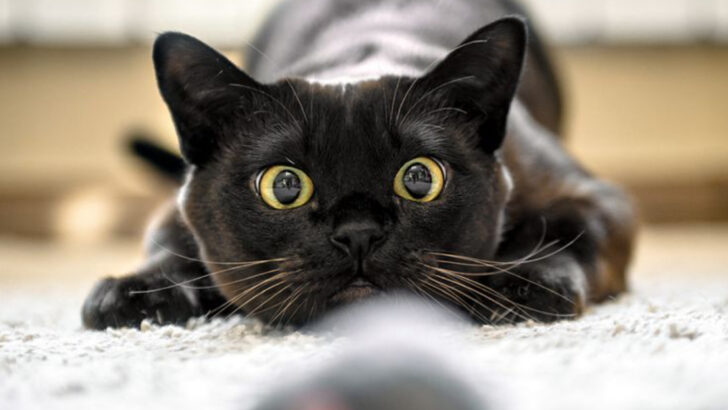Your cat is a tiny, adorable predator—and your ankles are fair game.
That sweet fluffball lounging in a sunbeam? Don’t be fooled. Inside lives a stealthy, wired-for-the-kill machine who stalks, pounces, and attacks… sometimes a feather toy, sometimes your sock.
This isn’t bad behavior—it’s instinct. Deep, ancient, and unstoppable.
Whether your cat’s chasing shadows at midnight or proudly dropping a stuffed mouse at your feet like it’s dinner, it all comes from the same primal place. Understanding it doesn’t just satisfy your curiosity—it helps you connect better with your furry hunter.
Let’s peek behind those sharp eyes and see what’s really going on.
Instinctual Predators
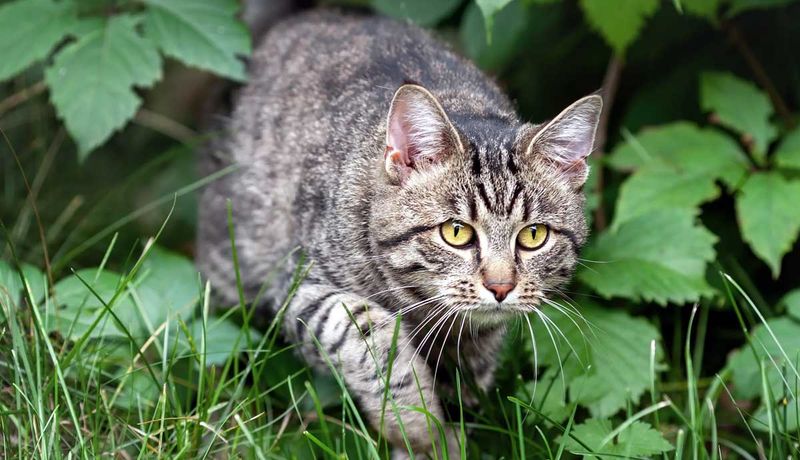
Even in the comfort of our homes, cats retain their predatory instincts. These innate behaviors date back to their wild ancestors, who relied on hunting to survive. Your domestic kitty’s playful pounce on a feathered toy isn’t just for amusement; it’s a nod to their lineage.
Understanding this instinct can help you create a stimulating environment for your pet, encouraging natural behaviors in safe ways. After all, those quick reflexes and sharp focus are more than a game—it’s in their DNA. Creating opportunities for these instincts to shine can nurture your pet’s well-being.
Playful Exploration
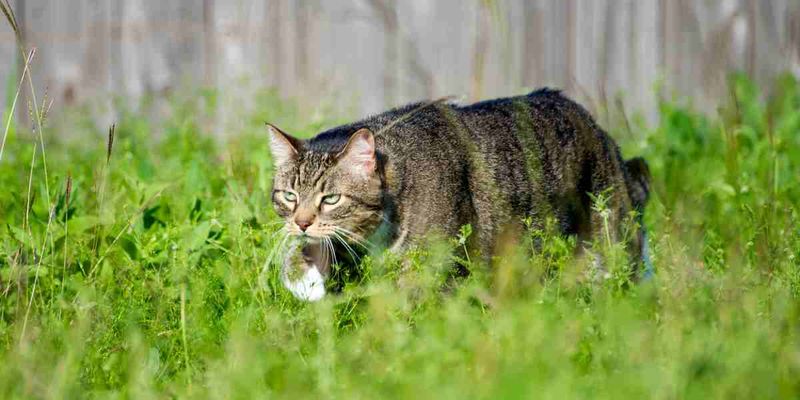
Kittens are the epitome of curiosity, and this trait extends into their hunting behavior. Watching a kitten chase a string or bat at a shadow can be both entertaining and enlightening. This playful exploration is how they learn about their world.
During these playful moments, they develop important skills for life, like coordination and timing. It’s not just about catching imaginary prey; it’s a fundamental learning process. Keeping your cat’s environment enriched with toys and interactive play can satisfy their exploration desires, helping them grow into well-adjusted adults.
Territorial Instincts
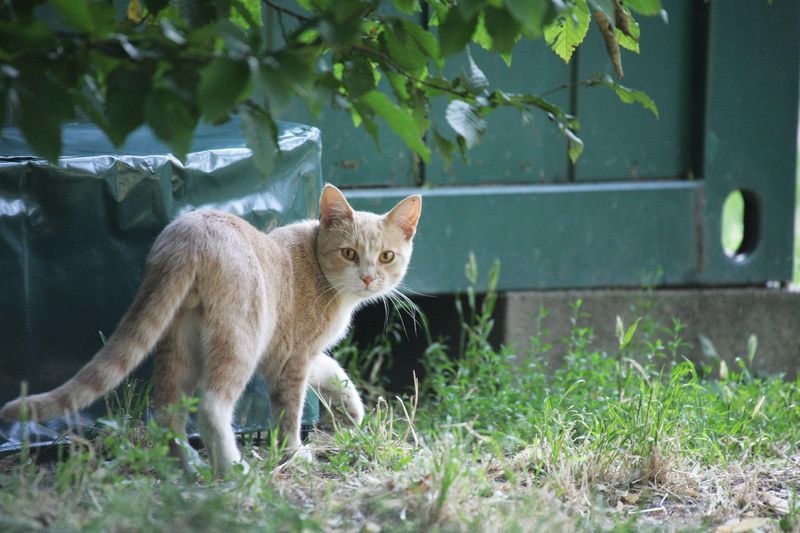
Cats are territorial creatures, and their hunting can be a way to assert dominance over their environment. When a cat hunts, it might be marking its territory, ensuring other animals know who’s in charge.
This behavior is not just about food; it’s a means of communication. By displaying their hunting skills, cats send a message to potential rivals. Providing ample space and recognizing your cat’s territorial needs can enhance their confidence and reduce stress. A secure territory means a contented cat, where hunting is a part of their natural expression.
Nighttime Activity
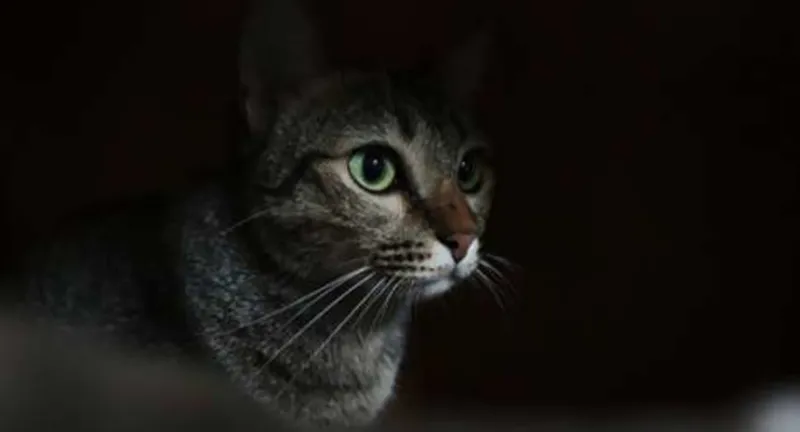
Cats are crepuscular by nature, making them most active during dawn and dusk. This is also when hunting activities peak, driven by their instinctual rhythms.
At night, your cat might surprise you by engaging in stealthier pursuits, exploring shadows and practicing their pouncing skills. This nocturnal activity isn’t just about hunting; it’s an exploration of their environment in tranquility. Providing toys and safe outdoor spaces can cater to these night owl tendencies, ensuring your pet remains active and satisfied even when the sun sets.
Scent and Sound Sensitivity
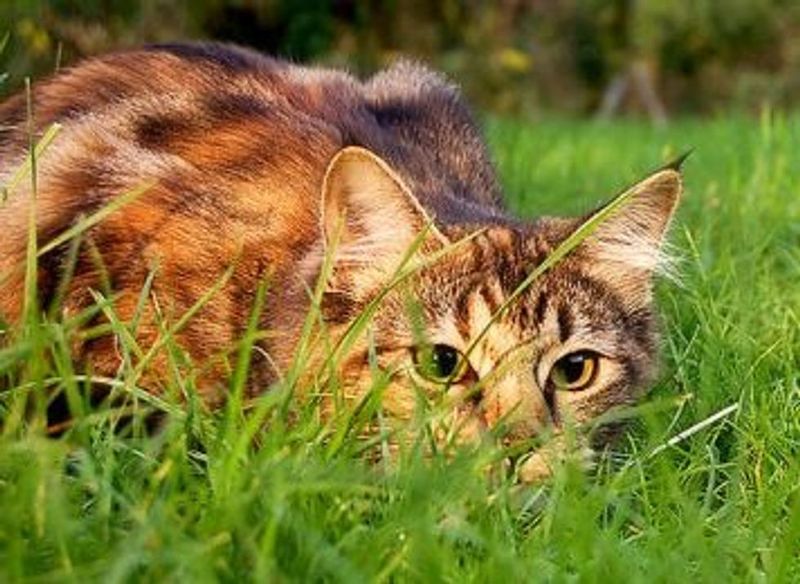
A cat’s keen senses play a crucial role in hunting. Their acute hearing and sense of smell help them detect even the slightest movement or sound.
Imagine your cat perked up, ears twitching at an unseen rustle; this sensitivity is a hunting advantage. These finely tuned senses are essential tools in their predatory arsenal. Enhancing this natural ability can be as simple as providing varied sound environments and scent-based toys. These stimulate their senses, keeping them engaged and mimicking the challenges they’d face in the wild.
Natural Curiosity
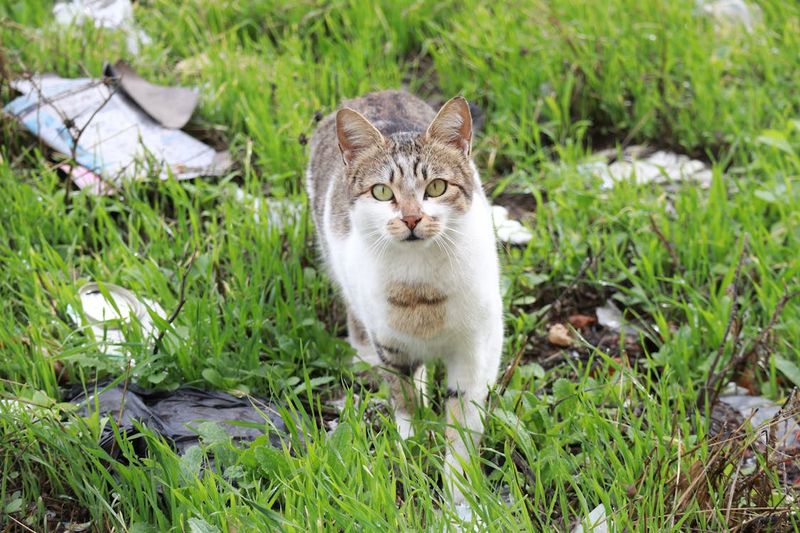
Cats possess an insatiable curiosity, often leading them on adventures in and around their homes. This trait is deeply tied to their hunting instincts as exploring new territories unveils potential prey.
Curiosity compels cats to investigate, climb, and sometimes end up in the most unexpected places. Encouraging this behavior through interactive play or allowing safe outdoor exploration can satisfy their inquisitive nature. This not only aids in their physical and mental development but also strengthens the bond between you and your feline friend.
Social Interaction
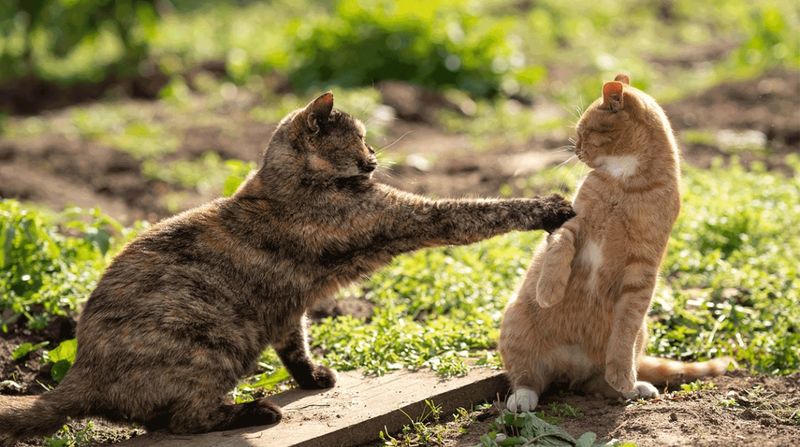
Hunting behaviors in cats aren’t always solitary; social interactions provide an avenue for play-hunting. When cats engage in play with each other, it strengthens social bonds and hones their skills.
These playful bouts are more than just fun; they’re practice sessions for real hunting. By facilitating play dates with fellow felines or engaging in activities yourself, you can help your cat refine these essential skills. Social play enriches their lives, offering both mental stimulation and physical exercise, crucial for a balanced lifestyle.
Hunting as Exercise
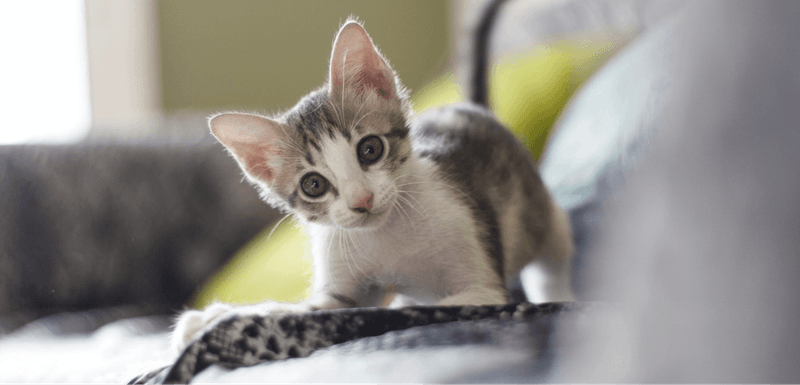
Beyond instinct, hunting serves as excellent exercise for cats. Chasing toys or engaging in mock hunts keeps them agile and fit.
These activities mimic the chase and capture dynamics of real hunting, providing a full-body workout. This isn’t just vital for physical health but also for mental stimulation. Regular play sessions can reduce boredom and prevent unwanted behaviors, ensuring your cat remains both entertained and healthy. Encouraging these exercises through diverse toys can transform your home into a feline fitness playground.
Prey-Driven Diet
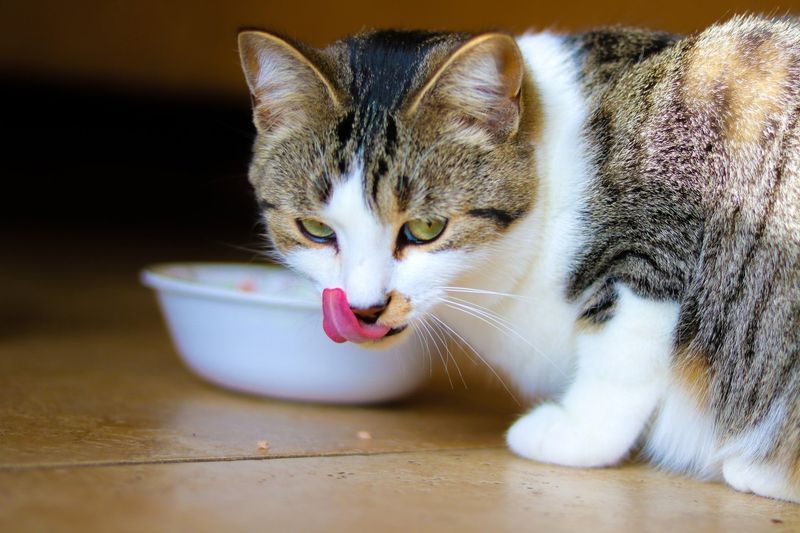
Cats are obligate carnivores, meaning their diet is primarily meat-based. This dietary requirement is another reason they hunt. Even the sound of a bird can trigger a cat’s prey drive.
Understanding this aspect can guide you in providing a diet that satisfies their nutritional needs. While domestic cats may not need to hunt their meals, acknowledging this instinct through diet and play can be fulfilling. Offering high-protein foods and hunting-inspired toys can cater to this natural drive, keeping your pet content and healthy.
Stress Relief
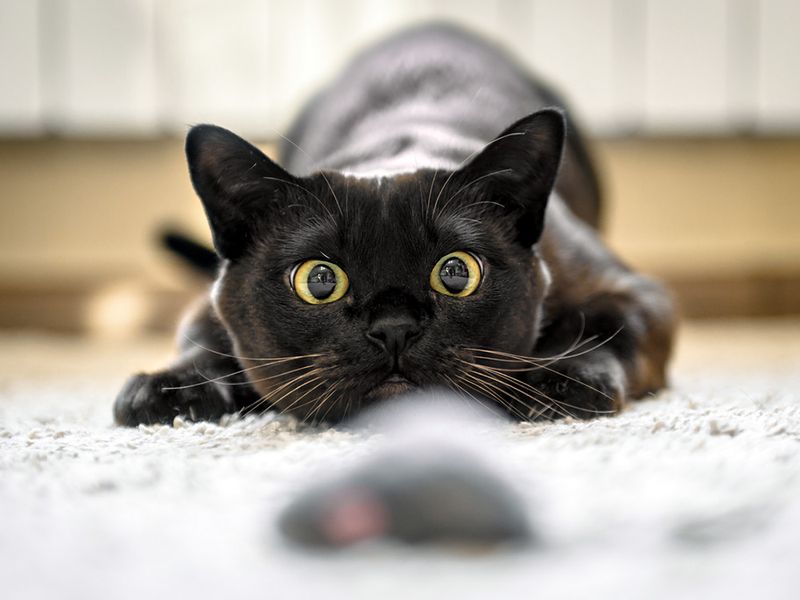
For many cats, hunting-like play serves as an effective stress reliever. The act of stalking and pouncing allows them to release pent-up energy and tension.
Engaging in these activities can transform stress into satisfaction, promoting a calmer demeanor. Providing outlets for this energy through hunting games or environmental enrichment can reduce anxiety. By understanding and encouraging these behaviors, you contribute to your cat’s overall happiness, ensuring a harmonious living space for both of you.

